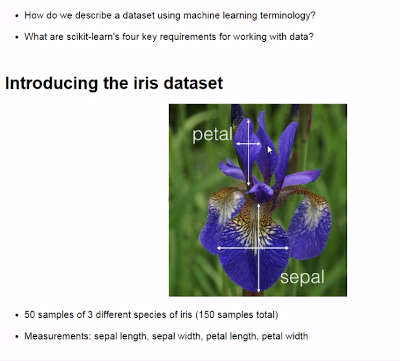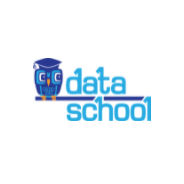| Introduction to Machine Learning with Scikit-Learn |
| Written by Nikos Vaggalis | |||
| Wednesday, 14 July 2021 | |||
|
A free course on the fundamentals of Machine Learning with Python, taught by Kevin Markham founder of Data School, helps you ease your way into ML and scikit-learn, one of the best-known libraries for this purpose. Python certainly is the most popular language of doing ML, mainly due to the number of relevant libraries available. scikit-learn is one of tho top Machine Learning libraries alongside PyTorch, NumPy, SciPy, TensorFlow and Theano. Additionally, scikit-learn is one of the easiest to learn as such perfect for beginning one's ML journey. That doesn't mean that it lacks functionality though; it is perfectly capable of pulling off many ML tasks such as classification, clustering, pre-processing, regression, etc. This fast paced course starts with the fundamentals and moves to more advanced topics in just under 4 hours. In the process you'll get to know ML,install scikit-learn & Jupyter notebook, go through the Machine Learning terminology, discover how to
There are 10 lessons: 1. What is Machine Learning, and how does it work? 2. Setting up Python for Machine Learning: scikit-learn and Jupyter Notebook 3. Getting started in scikit-learn with the iris dataset 4. Training a Machine Learning model with scikit-learn 5. Comparing Machine Learning models in scikit-learn 6. Data science pipeline: pandas, seaborn, scikit-learn 7. Cross-validation for parameter tuning, model selection, and feature selection 8. Efficiently searching for optimal tuning parameters 9. Evaluating a classification model 10. Building a Machine Learning workflow In detail, Lesson 1 goes through the two main categories of Machine Learning (Supervised,Unsupervised) and some examples of Machine Learning. Lesson 2 goes through Installing scikit-learn & Jupyter notebook for following along the exercises.The course code uses scikit-learn 0.23.2 and Python 3.9.1. Lesson 3 is where the main class commences, by employing the famous Iris flowers dataset (it contains 3 classes of 50 instances each, where each class refers to a type of iris plant), loading it and working on it.
The rest of the chapters get deep into ML;training models,tuning parameters for those models, interpreting linear regression models,choosing which features to include ,doing K-fold cross-validation,evaluating a classification model,building and cross-validating ML Pipelines... After each video there is an interactive quiz in order to check your understanding, plus pointers to recommended resources,while after completing the course you'll even get a certificate of completion. It's a course that's valuable whether you are brand new to ML, in which case you should start from the beginning, and also if you're just new to scikit-learn, in which case you can safely skip the first few lessons and get straight into the main material. While being literate in Data Science is not a pre-requisite, but minimal knowledge of Python is. In any case, it's a first class opportunity to ease your way into the ML world with help from a great Python library. After all, more than 80% of data scientists use scikit-learn, according to Kaggle's recent "State of Machine Learning" report. Count me in.
More InformationIntroduction to Machine Learning with scikit-learn Related ArticlesLearn Python with HackInScience Fly Over the Moon With Microsoft And Python Learn Python with Microsoft or the University of Michigan
To be informed about new articles on I Programmer, sign up for our weekly newsletter, subscribe to the RSS feed and follow us on Twitter, Facebook or Linkedin.
Comments
or email your comment to: comments@i-programmer.info |
|||
| Last Updated ( Wednesday, 14 July 2021 ) |





